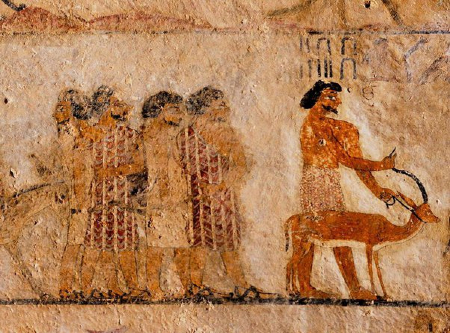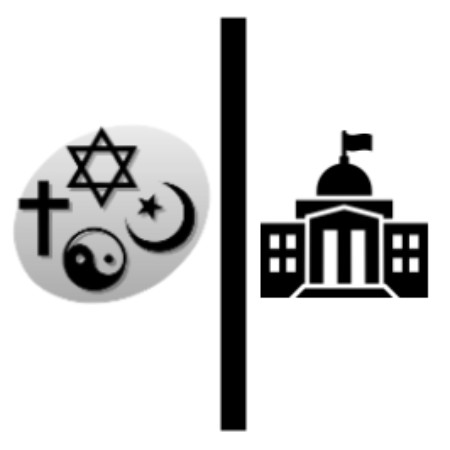Biblical Lost Alphabet Traced Back to Ancient Canaanite Civilization
FREE Catholic Classes
Archaeologists have finally traced a lost alphabet that puzzled scholars for decades back to a 3,000-year-old civilization of Biblical significance.

Highlights
7/22/2024 (4 months ago)
Published in Middle East
Keywords: Canaanites, Deir 'Alla, ancient script, Biblical archaeology, Bronze Age, Jordan Valley
Since 1964, archaeologists have discovered 15 different tablets with strange carvings at the site of an ancient settlement in Jordan. Thanks to new analysis, they found that these tablets were likely made by the Canaanites, an indigenous group that thrived in the Middle East until the second half of the 13th century BC.
The Canaanites resided in "the Promised Land" from 3500 BC until 1200 BC before being conquered by Israeli tribes following their Exodus from Egypt. They are mentioned several times in the Old Testament, including in the books of Genesis, Leviticus, Deuteronomy, and Joshua. For example, in Joshua 3:10, God tells the Israelites that he will drive out the Canaanites before they arrive in the Promised Land.
During the Bronze Age, the Canaanites lived throughout the Southern Levant, which includes modern-day Israel, Gaza, the West Bank, Jordan, Lebanon, and parts of Syria. The mysterious clay tablets date back to this era.
The study, published in the American Society of Overseas Research, revealed that the script was written from left to right and featured 29 unique symbols, including dots, vertical bars, and other abstract designs. Researchers suggested that the inscriptions are short cultic proverbs related to the religious temple they were found in, which was burned and destroyed thousands of years ago.
The tablets were discovered at Deir 'Alla, an ancient settlement at the center of the Jordan Valley. The temple, located at this site, was damaged during widespread destruction in the 13th and 12th centuries. Archaeologists found the tablets in a heavily burned part of the excavation site, alongside ceramics, ceremonial vessels, armor, and sculptures gifted by Egyptian Queen Twosret, dating the destruction to shortly after 1180 BCE.
The tablets' script shares similarities with the proto-Sinaitic script, a Middle Bronze Age writing system, and proto-Canaanite alphabets found at other Late Bronze Age dig sites. However, the tablets also showed unique sign combinations, such as one resembling an eye, identified as an 'ayin,' the Hebrew word for 'eye.' Analyzing these signs alongside late Hebrew grammar revealed that the tablets seem to contain "short ritual utterances" and "poetic proverbs."
These findings suggest that the tablets were used in cultic rituals at the Deir 'Alla temple. However, further studies are needed to fully translate them. Understanding these tablets has provided insights into the Canaanite language spoken in the region before the Israelite conquest, but many questions remain.
Experts know that literacy was not widespread until the late Iron Age. During the Bronze Age, writing mainly occurred in isolated areas and was related to the scribal practices of powerful societies like the Egyptian state. Scholars speculate that alphabetic writing may have been used among small groups of scribes, potentially concentrated within temples. This suggests that the Deir 'Alla tablets could be the last remnants of a writing practice created at temples throughout Canaan before its collapse.
Join the Movement
When you sign up below, you don't just join an email list - you're joining an entire movement for Free world class Catholic education.

-

-
Mysteries of the Rosary
-
St. Faustina Kowalska
-
Litany of the Blessed Virgin Mary
-
Saint of the Day for Wednesday, Oct 4th, 2023
-
Popular Saints
-
St. Francis of Assisi
-
Bible
-
Female / Women Saints
-
7 Morning Prayers you need to get your day started with God
-
Litany of the Blessed Virgin Mary
Lost Traditions, Hidden Agendas: How Rockefeller Reshaped Medicine and Erased Ancient Knowledge
-

Advent Reflection - Day 4 - The First Wednesday of Advent
-

Separation of Church and State: Myth, Reality, and Its Role in a Troubled Society
-
This Giving Tuesday: Help Rebuild After an Attempt to Silence Us
-
From Holy Ghost to Holy Spirit: The Evolution of Language in Catholic Theology
Daily Catholic
 Daily Readings for Thursday, December 05, 2024
Daily Readings for Thursday, December 05, 2024 St. Sabas: Saint of the Day for Thursday, December 05, 2024
St. Sabas: Saint of the Day for Thursday, December 05, 2024 Infant Jesus of Prague Novena Prayer: Prayer of the Day for Thursday, December 05, 2024
Infant Jesus of Prague Novena Prayer: Prayer of the Day for Thursday, December 05, 2024- Daily Readings for Wednesday, December 04, 2024
- St. John of Damascus: Saint of the Day for Wednesday, December 04, 2024
- Thanks for Family and Friends: Prayer of the Day for Wednesday, December 04, 2024
![]()
Copyright 2024 Catholic Online. All materials contained on this site, whether written, audible or visual are the exclusive property of Catholic Online and are protected under U.S. and International copyright laws, © Copyright 2024 Catholic Online. Any unauthorized use, without prior written consent of Catholic Online is strictly forbidden and prohibited.
Catholic Online is a Project of Your Catholic Voice Foundation, a Not-for-Profit Corporation. Your Catholic Voice Foundation has been granted a recognition of tax exemption under Section 501(c)(3) of the Internal Revenue Code. Federal Tax Identification Number: 81-0596847. Your gift is tax-deductible as allowed by law.






 Daily Readings for Thursday, December 05, 2024
Daily Readings for Thursday, December 05, 2024 St. Sabas: Saint of the Day for Thursday, December 05, 2024
St. Sabas: Saint of the Day for Thursday, December 05, 2024 Infant Jesus of Prague Novena Prayer: Prayer of the Day for Thursday, December 05, 2024
Infant Jesus of Prague Novena Prayer: Prayer of the Day for Thursday, December 05, 2024

